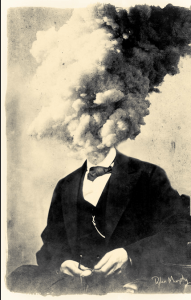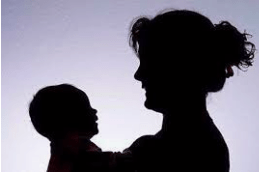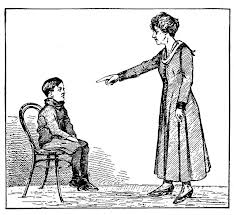How to stay clear-headed when unwelcome emotions are ruining the flavour of your lessons
Many years ago, I had all the answers, I lived in a house with similar like-minded people. Let’s call it the house of fun. There was, at that time, nothing I didn’t know. And if I came across anyone who seemed to know more than me about anything, then I just decided that what he or she knew wasn’t worth anything. With my cool friends, I revelled in other people’s mistakes, their foolish ideas, their misplaced beliefs.
“Their knowledge was, in short, a threat to my identity…”
Many years later, I began to realise that the main reason I did this was that I found their knowledge threatening. If I was to learn from them, I would have to let go of the façade. I would have to accept, and, harder still, be seen to accept, that something about me was lacking. Their knowledge was, in short, a threat to my identity, which, at that time was pretty fragile.
I have always found being taught a challenge. That’s not the same as learning…
Due to the make-up of my own particular background, I have always found being taught a challenge. That’s not the same as learning. I have a reasonably successful history as a learner. I love learning. Always have. But allowing oneself to be taught by another person is an entirely different prospect. Happily, this is not, in my experience, the case for most of the students in a classroom. Most enter the teaching and learning relationship with relative ease. They are attuned to the ‘game’. However, these aren’t the students who can and will disrupt your lessons. Like my arrogant younger self, these students will do anything rather than risk having their identities exposed as lacking. Their identity is dependent on the certainty that they have created for themselves. For some, being taught feels like a personal attack, a matter of life and death and they will tear any teacher apart before they open up to what they have to offer.”:”
 Teachers who are not prepared to meet these students can often find themselves in what feels like a soup of emotional conflict and confusion. These pupils react to the smallest invitation to open their books with disdain, they undermine your kindness with accusations of weakness and they can join together to expel you and your precious lesson from their lives with ease.
Teachers who are not prepared to meet these students can often find themselves in what feels like a soup of emotional conflict and confusion. These pupils react to the smallest invitation to open their books with disdain, they undermine your kindness with accusations of weakness and they can join together to expel you and your precious lesson from their lives with ease.
I take my relationships with pupils personally. I always have
Many teachers are thick-skinned enough not to notice or to care too much. They keep showing up and delivering the lesson with adherence to the rules and an even hand. It is this even-ness that wins out in the end. They get results, they enjoy long careers in teaching, they may even climb the ladder. Great. All power to them. But that has never been the case for me. I’m just not built that way.
I take my relationships personally. I take my relationships with pupils personally. I always have and I judge, for every teacher who survives the classroom by just blithely ‘getting on with it”, there are many more for whom the interpersonal relationship with students something that either makes or breaks them.
Ultimately it can lead to more serious consequences, days out of school, a low or damaged sense of self- esteem loneliness, isolation, sleepless nights…
 Being ‘broken’ as a teacher shows up in poorly planned lessons, over-planned lessons, shouting matches with the same student over and over again, constantly moaning and blaming students or management or the government for your plight. Ultimately it can lead to more serious consequences, days out of school, a low or damaged sense of self- esteem loneliness, isolation, sleepless night, obsessing over a class, a belief that you are just not safe, the list goes on. This list will be familiar to many of you and I know there are many schools who are now working to help teachers resolve these feelings by offering more practical and personal support.
Being ‘broken’ as a teacher shows up in poorly planned lessons, over-planned lessons, shouting matches with the same student over and over again, constantly moaning and blaming students or management or the government for your plight. Ultimately it can lead to more serious consequences, days out of school, a low or damaged sense of self- esteem loneliness, isolation, sleepless night, obsessing over a class, a belief that you are just not safe, the list goes on. This list will be familiar to many of you and I know there are many schools who are now working to help teachers resolve these feelings by offering more practical and personal support.
On the back of the toilet door in our ‘house of fun’, hung Rudyard Kipling’s poem ‘If’. Whenever anyone came back from the toilet, one sure way to get a laugh was to mimic Kipling’s opening lines as though they were being said by a sincere parent: “If you can keep your head when all about are losing theirs and blaming it on you…”. Howls of laughter. What idiot would aspire to that…! Looked at in the light of many classrooms where I have seen teachers unable to keep their heads, and having been that teacher who has either flipped his wig or just abdicated to a safe space somewhere floating above the mellay, I am now not quite so cock-sure.
 Losing one’s head, or being lost in one’s head, especially when you are the one supposedly providing leadership and direction feels like drowning in soup. It is a form of what psychologists call “dissociation” and is a symptom that comes from feeling unsafe. Dissociation is often associated with victims of trauma whereby they ‘leave’ their body and keep the present moment and all its threats at arms-length. I hesitate even speaking this out because, in my experience, schools don’t like this kind of language. They are not yet set up to help teachers who feel traumatised by the work they do on a daily basis. Instead, teachers are left to sort it out themselves. They self-blame. Instead of being taught the fundamental psychological dynamics of teaching and learning, they are ignored or offered armour plated advice to “not take it to heart” or blamed for not following the behaviour policy. Worse still, sometimes teachers who “struggle”, feel marginalised are scapegoated they are labelled as not being “cut out for teaching”. In some cases, what follows are accusations of lack of competency, greater ‘scrutiny’, a greater sense of trauma and too often a parting of the ways.
Losing one’s head, or being lost in one’s head, especially when you are the one supposedly providing leadership and direction feels like drowning in soup. It is a form of what psychologists call “dissociation” and is a symptom that comes from feeling unsafe. Dissociation is often associated with victims of trauma whereby they ‘leave’ their body and keep the present moment and all its threats at arms-length. I hesitate even speaking this out because, in my experience, schools don’t like this kind of language. They are not yet set up to help teachers who feel traumatised by the work they do on a daily basis. Instead, teachers are left to sort it out themselves. They self-blame. Instead of being taught the fundamental psychological dynamics of teaching and learning, they are ignored or offered armour plated advice to “not take it to heart” or blamed for not following the behaviour policy. Worse still, sometimes teachers who “struggle”, feel marginalised are scapegoated they are labelled as not being “cut out for teaching”. In some cases, what follows are accusations of lack of competency, greater ‘scrutiny’, a greater sense of trauma and too often a parting of the ways.
So, how can psychology help with that?
Well only by reiterating what I have learned through my study of learning psychology and applied successfully inn my own classrooms. In a nutshell, it is this:
 The relationship between teacher and learner is a replication of the relationship between carer and cared for. In other words, pupils will transfer their internal/psychological expectations of their primary carer – usually the maternal figure – onto their teacher. This is an unconscious process so runs very deep. The great thing about this for teachers is that children want to be in relationship with you as their teacher. They are unconsciously driven to do that. However, part of that unconscious drive to connect is predicated on their intrinsic survival needs and whether you and the classroom environment that you create, will meet those needs. Think of it like this. In front of you are 30 babies who need your help in order to grow. The needs of these babies when they were small were physiological – they needed warmth, they needed to be held in order to feel safe and they needed food.
The relationship between teacher and learner is a replication of the relationship between carer and cared for. In other words, pupils will transfer their internal/psychological expectations of their primary carer – usually the maternal figure – onto their teacher. This is an unconscious process so runs very deep. The great thing about this for teachers is that children want to be in relationship with you as their teacher. They are unconsciously driven to do that. However, part of that unconscious drive to connect is predicated on their intrinsic survival needs and whether you and the classroom environment that you create, will meet those needs. Think of it like this. In front of you are 30 babies who need your help in order to grow. The needs of these babies when they were small were physiological – they needed warmth, they needed to be held in order to feel safe and they needed food. 
It is how these physiological needs are met that help us develop intellectually. A baby that feels welcomed (warm), is held(feels safe) and is fed (given the resources that make it feel both challenged and ‘sated’) will develop into a healthy child. The provision of these needs also allows the child to feel as though it deserves to learn, that the carer is rooting for them and that, no matter what, they will be loved. Parents are forever being tested by their children. From very early on, infants test the boundaries within which they can feel safe. As they expand these boundaries, they create a safer space for themselves to grow into. This pattern is set to repeat all of their lives, into adolescence and into adulthood. No matter who we are, we will still checking for safety before we jump into any new venture or learning experience. As adults we may be able to do this reasonably and have the capacity to think through the challenges. However, this is not so straight forward for children and adolescents. Young people test our boundaries in less ‘reasonable’ ways; shouting, misbehaving, undermining, being dismissive, treating our suggestions with disdain etc.
My suggestion here is that understanding that students want to create a learning relationship with us as teachers but need to test our ability to ‘hold’ them. To treat then kindly and offer them food (learning) that will make them feel satisfied, may help us to step out of the soup and maybe even reconstitute it into its salient and useful ingredients.
Being clear about our own boundaries and our own needs and knowing that we will be tested is a good place to start when preparing to meet students who, however crudely, are always asking for our grown-up help.
Next up: Why are so many schools afraid of providing substantial mental health support for classroom practitioners?



